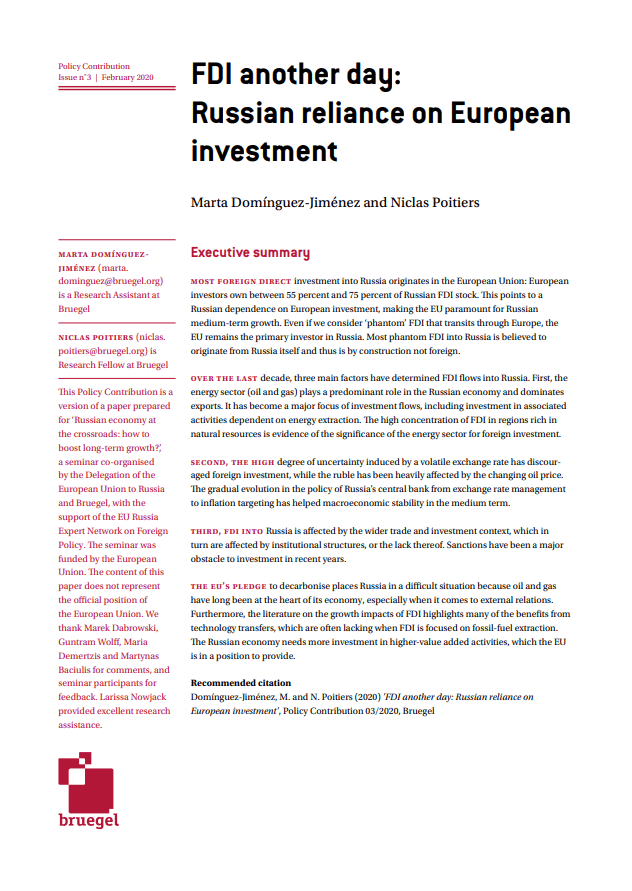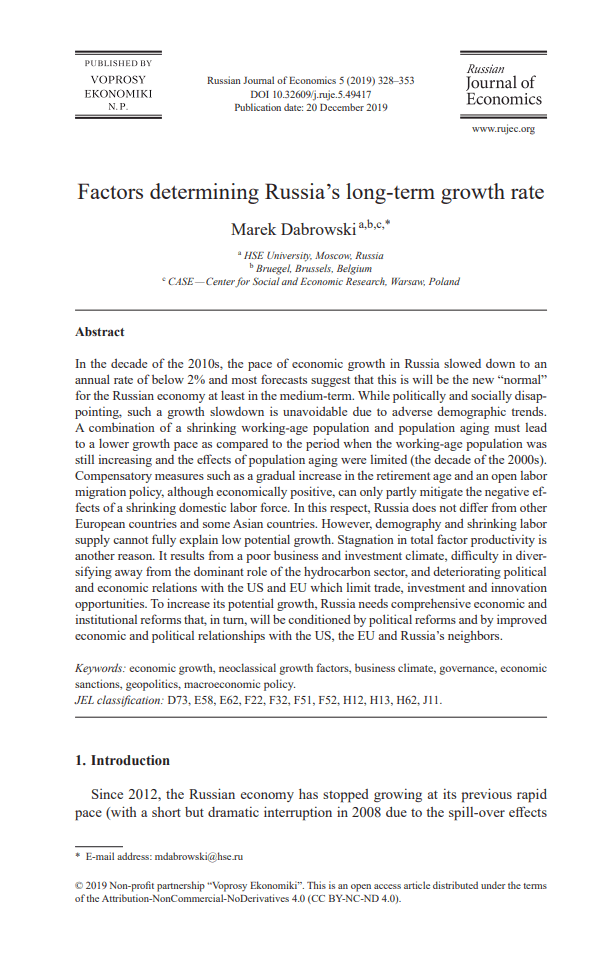Policy Contribution

FDI another day: Russian reliance on European investment
Most foreign direct investment into Russia originates in the European Union: European investors own between 55 percent and 75 percent of Russian FDI stock. This points to a Russian dependence on European investment, making the EU paramount for Russian medium-term growth. Even if we consider ‘phantom’ FDI that transits through Europe, the EU remains the primary investor in Russia. Most phantom FDI into Russia is believed to originate from Russia itself and thus is by construction not foreign.




